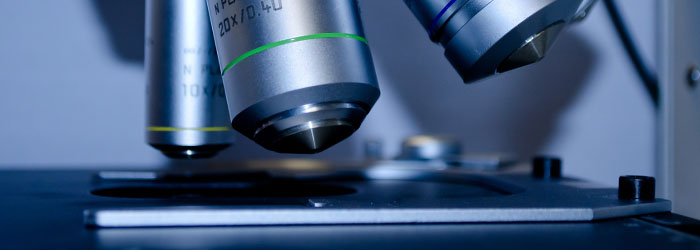CHEM-100: The Molecular World 5:1 (4)
A general introduction to chemistry leading to biochemistry and the chemistry of life. Study of the composition of materials, their structures and properties, related energy conversions, and the use of molecular genetic information. Questions of scientific inquiry and the scientific method in cultural and historical contexts are considered. Usually offered every term. Prerequisite: completion of the University Mathematics Requirement, or concurrent enrollment in MATH-170 or MATH-211 or STAT-202.
CHEM-110: General Chemistry I 5:1 (4)
A general introduction to chemistry: the scientific method; atomic structure; stoichiometry and chemical reactions; heat changes; electronic structure of atoms; molecular geometry; and liquid, solid, gas, and solution chemistry. Provides a sound basis in concepts, vocabulary, and analytical problem solving. Related laboratory work covers the scientific method, measurements using scientific apparatuses, collection and manipulation of data, error analysis, and illustration of scientific principles. Usually offered every term. Prerequisite: completion of the University Mathematics Requirement, or concurrent enrollment in MATH-170 or MATH-211 or STAT-202.
CHEM-210: General Chemistry II 5:2 (4)
Oxidation-reduction reactions, reaction rates, equilibrium and its relation to thermodynamics, acid-base chemistry and its practical applications, electrochemistry, molecular bonding theory, and nuclear chemistry. Related laboratory work covers titration techniques, spectroscopic analysis, kinetics experiments, and introduction to qualitative and quantitative analysis. Usually offered every spring. Prerequisite for General Education credit: CHEM-100 or CHEM-110 or PHYS-100 or PHYS-105 or PHYS-110.
CHEM-220: Environmental Resources and Energy 5:2 (3)
General discussion of the chemistry of our environment, including description of the ideal unpolluted environment and a historic view of pollution. Classes and interactions of pollutants with the environment are described. Emphasis is placed on understanding the chemistry of pollutants and how they affect our quality of life. Usually offered every term. Prerequisite for General Education credit: CHEM-100 or CHEM-110 or PHYS-100 or PHYS-105 or PHYS-110.
CHEM-230: Earth Sciences 5:2 (3)
Combines geology, geophysics, and geochemistry in describing the evolution of our planet, the deep structure of the earth, its plate tectonic evolution, and interaction of the crust with the hydrosphere, biosphere, and atmosphere. Occasional laboratory demonstrations and field trips. Usually offered every term. Prerequisite for General Education credit: CHEM-100 or CHEM-110 or PHYS-100 or PHYS-105 or PHYS-110.
CHEM-310: Organic Chemistry I (3)
Systematic treatment of hydrocarbons, alkyl halides, alcohols, carbonyl compounds, acids, and their derivatives. Ionic and free radical reactions and stereochemistry. Usually offered every fall. Prerequisite: CHEM-210. Must be taken concurrently with CHEM-312.
CHEM-312: Organic Chemistry I Laboratory (1)
Laboratory theory and practice in synthesis, separation, and purification of organic compounds. Introduction to separation techniques including thin-layer, column, and gas chromatography. Usually offered every fall. Prerequisite: concurrent registration in CHEM-310.
CHEM-320: Organic Chemistry II (3)
Aliphatic and aromatic compounds and electrophilic substitution; spectral methods; and nitrogen compounds and their derivatives. Introduction to polyfunctional compounds including amino acids, carbohydrates, lipids, and nucleic acids. Usually offered every spring. Prerequisite: CHEM-310; must be taken concurrently with CHEM-322.
CHEM-322: Organic Chemistry II Laboratory (1)
Multistep syntheses; synthesis of polyfunctional compounds; introduction to infrared and nuclear magnetic resonance spectra; qualitative organic analysis. Usually offered every spring. Prerequisite: must be taken concurrently with CHEM-320.
CHEM-330: Environmental Chemistry (3)
This program emphasizes that all parts of the environment are made up of chemicals, and that natural processes occurring in the environment all involve chemical reactions. As part of a description of the chemistry of the lithosphere, hydrosphere, and atmosphere, the composition of an unpolluted environment is presented, as well as techniques used by the EPA to measure pollutants. Prerequisite: CHEM-110.
CHEM-401: Geology (3)
Study of the interior and exterior of the earth and how it works. Focus is on the processes that shape the earth's surface: weathering, mass-wasting, water, wind, glaciers, and plate tectonics. The evolution of the earth including the impact of earthquakes, rock deformation, and landscape evolution. The import of the need for energy and mineral resources is also considered. Usually offered every third semester. Prerequisite: CHEM-110.
CHEM-410: Biophysical Chemistry (3)
This physical chemistry program provides an introduction to quantum mechanics, statistical mechanics, thermodynamics, and kinetics applied to biological systems by using examples from the life sciences. Usually offered alternate falls. Prerequisite: CHEM-210, MATH-221.
CHEM-411: Biophysical Chemistry Laboratory (1)
Experiments illustrate practical applications of physical chemistry to biochemical and biological systems. Usually offered alternate falls. Prerequisite: must be taken concurrently with CHEM-410.
CHEM-490: Independent Study Project in Chemistry (1-6)
Prerequisite: permission of instructor and department chair.
CHEM-491: Internship (1-6)
Prerequisite: permission of instructor and department chair.

